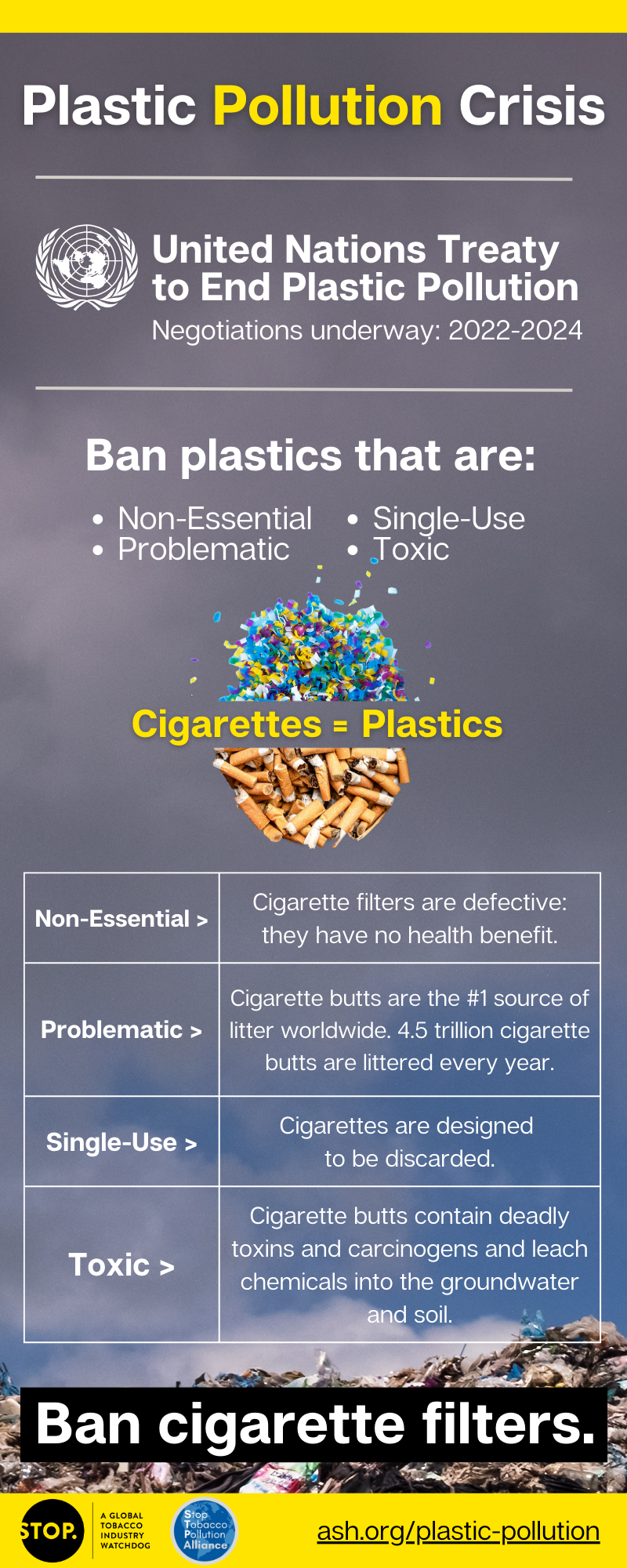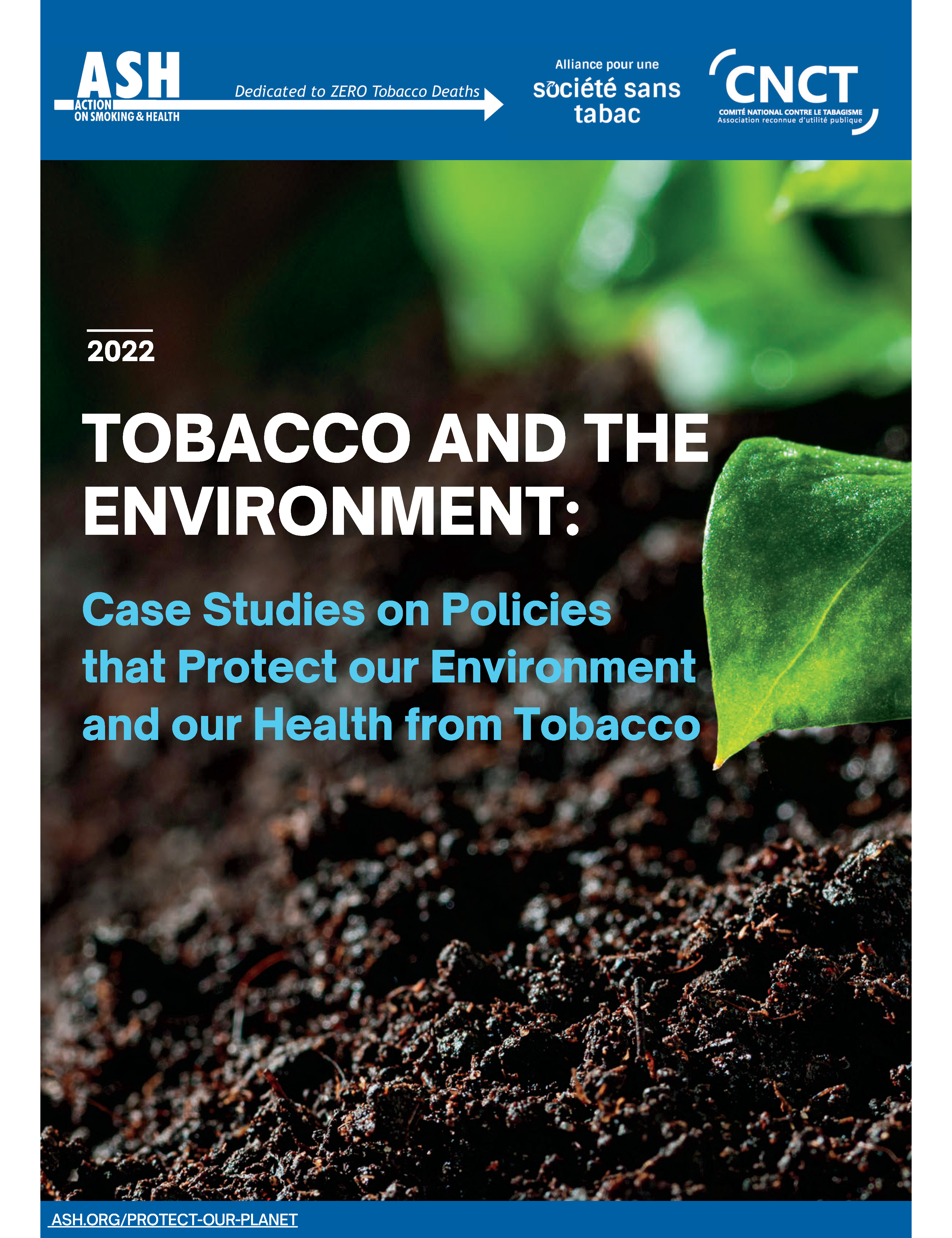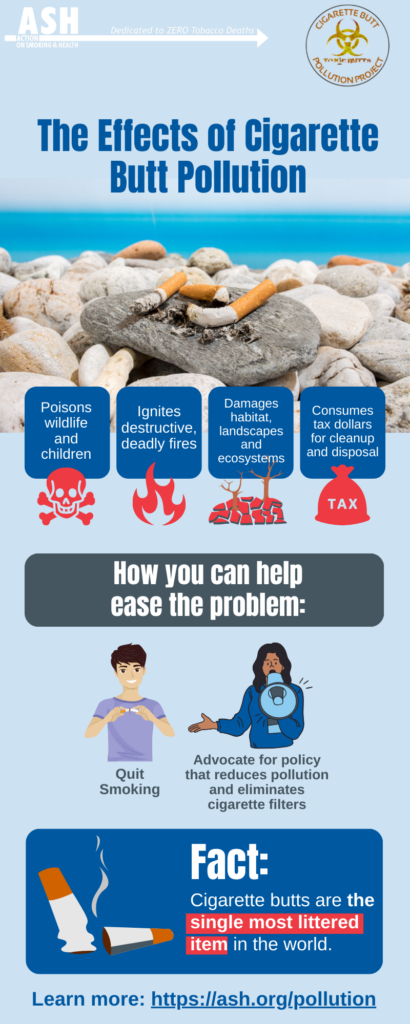Cigarettes are most commonly categorized as a health problem, but they are a huge environmental problem as well. The entire life cycle of a cigarette has an impact on the environment – from growing the tobacco to throwing away the butt and beyond.
Tobacco growth and cultivation causes deforestation. Trees are often cut down to make room for tobacco plants. Once tobacco plants have been harvested, they are “cured.” Sometimes the curing is done by air drying, but often tobacco is cured by burning wood to heat the air, which speeds up the process.
It’s estimated that 600 million trees are cut down every year to produce tobacco products and cigarette-manufacturing machines use up to four miles of paper an hour to roll and package cigarettes.
To read more about tobacco farming click here>
Tobacco cultivation is responsible for a myriad of environmental problems, including land and water pollution due to pesticides. Tobacco plants are prone to many insect pests, and therefore tobacco farmers are forced to use pesticides to keep the plants healthy. Not only do tobacco growers often get sick from the pesticides, but the pesticides also leach into the soil and water.
Tobacco cultivation is a source of air pollution, and cigarettes also have a significant effect on air pollution while they are being smoked. When cigarettes are burned, they create more than 7,000 chemicals. At least 69 of these chemicals are known to cause cancer, and many are poisonous.
A study in Italy found that cigarettes release 10 times as much particulate matter into the air as a diesel engine. Smoke from cigarettes and from tobacco cultivation is contributing to climate change.
It’s well established that second hand smoke is extremely dangerous. Some advocates have been using environmental arguments and law to protect people from harmful smoke in indoor environments as well.
In addition to pollution during the cultivation process, tobacco products create a huge amount of waste after they have been consumed.
In 2009, tobacco products—primarily cigarette butts— comprised nearly 38% of all collected litter items from roadways and streets. In 2010, over one million (1,181,589) cigarettes or cigarette filters—enough to fill 94,626 packs—were removed from American beaches and inland waterways. Cigarette butts are toxic to animals and children that may swallow them, they pollute groundwater, and they leach chemicals into soil. Compounding this problem is the waste from other items related to smoking such as cigarette packages and lighters or matches. Cigarette butts and other tobacco-related trash are a massive environmental problem.
To read more about cigarette butts, click ASH Earth Day Blog: Kicking Butts Out of the US

The United Nations Environment Programme (UNEP) has correctly designated cigarette filters as a form of single-use plastic. One of the first orders of business for the International Negotiation Conference (INC) for the plastics treaty will be to consider a ban or strict regulation of all single-use plastics as a necessary measure to reduce pollution and save our oceans. INC-1 took place in November 2022, and INC-2 will happen in May 2023.
Cigarette filters are the number one form of litter worldwide – 4.5 trillion are littered every year.
As part of Project Sunset – a global initiative to phase out the sale of commercial tobacco products – ASH is joining the UN Plastics Treaty negotiations as an organizing member of the Stop Tobacco Pollution Alliance (STPA).
A ban on filters would be one of the most impactful policies in the history of tobacco control.
Read more about our work on the UN Plastic Treaty here>

Tobacco Product Waste is a completely preventable and controllable environmental disaster. With natural resources being depleted and climate change accelerating, governments must take action to reverse trends.
The European Union, France, and localities in the United States recognize that stronger regulations on tobacco can accelerate progress to protect our environment and our health at the same time.
Read the Report – Tobacco and the Environment: Case Studies on Policies that Protect our Environment and our Health from Tobacco
“More governments should look to the EU, France, and US jurisdictions for creative ways to implement environmental policy to reduce, mitigate, and prevent the harm caused by the tobacco industry,” said Kelsey Romeo-Stuppy, Managing Attorney at Action on Smoking and Health (ASH).
Tobacco and its negative impacts on the environment are a violation of human rights, such as the right to clean air and water, as well. Many countries now included the right to a healthy environment in their Constitutions, and tobacco threatens that right.
To read more about Tobacco, the environment and human rights, check out these resources
- ASH’s Tobacco and Human Rights Hub > Parallel Issues
- Tobacco Induced Diseases Journal > Mandatory Environmental and Human Rights Due Diligence
